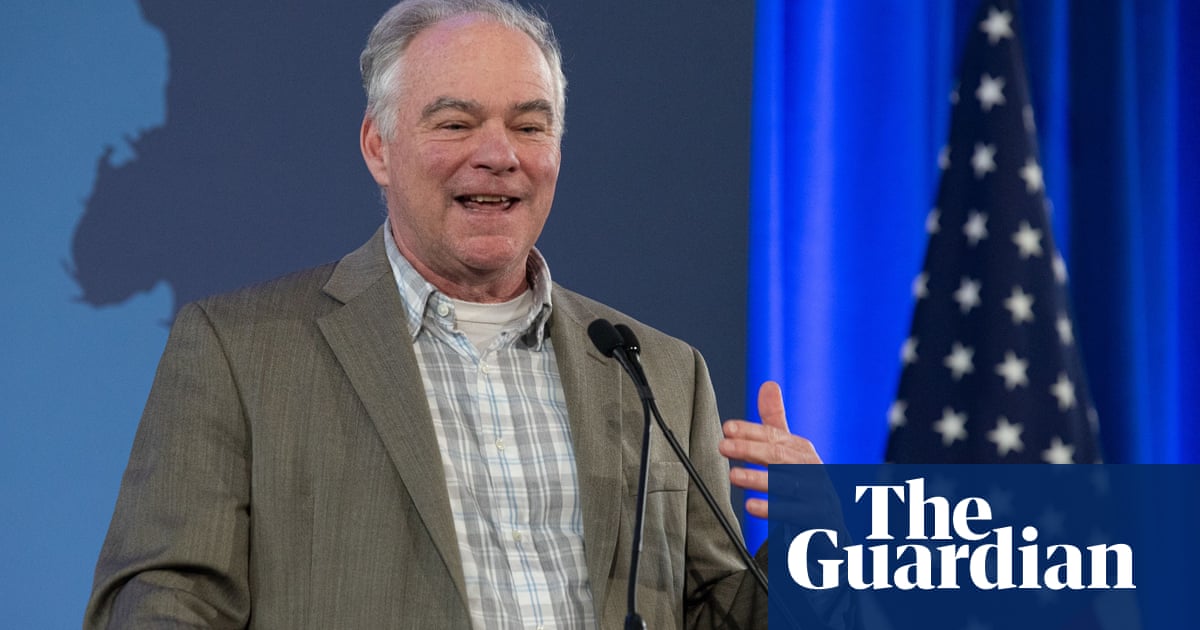
It may seem harsh that Gregg Berhalter’s job as USMNT head coach is in acute jeopardy because one of his players decided to smack an opponent in the head.
Then again, in the US’s last big tournament test before it co-hosts the 2026 World Cup, a coach expected to reach at least the quarter-finals is staring at a group-stage exit in the Copa América, barring what seems an improbable triumph against one of the favorites, Uruguay, in Kansas City on Monday.
Nice guy, Berhalter. Popular with players, respectful to the media, hard-working, thoughtful, sincere and caring. But the core issue since the round of 16 exit to the Netherlands at Qatar 2022 World Cup is ruthless in its clarity and simplicity: is the man who admirably resuscitated the program and nurtured a gifted group of youngsters towards maturity after the failure to reach the 2018 World Cup also the right man to take the US to the next level? Will he do better in 2026, the biggest single opportunity to grow the sport in the US since 1994?
Much of the chat entering the Copa was of the growing need for Berhalter’s team to conjure a signature win. He took charge of his first fixture in January 2019, a 3-0 win over Panama, and Thursday’s demoralizing 2-1 loss to the same opponents in Atlanta was his 73rd game. Yet under his management the most talented roster in the nation’s history, with a bona fide global star in Christian Pulisic of Milan, supported by a cast of other players at top-flight European clubs, is yet to claim a win over a non-Concacaf nation in the top 25 of Fifa’s rankings.
A likely quarter-final against Brazil or Colombia was anticipated to be the opportunity for a show-stopping, confidence-starting, occasion. However, with Uruguay top of Group C with six points from two fixtures, the US and Panama tied on three, and Panama still to play Bolivia – a dismal outfit from a country currently confronting a failed coup attempt, which seems like a very reasonable excuse to be distracted by something even more important than soccer – Monday may be Berhalter’s last chance.
The match at Arrowhead Stadium against Uruguay, who are 14th in the Fifa rankings (three places below the US, but don’t let that fool you), would be an apposite moment to change the narrative. However, it’s hard to feel optimistic that either the coach or the players, who’ve been sloppy in three of their four games this month (the honorable exception a terrific 1-1 Copa tune-up with Brazil), have what it takes to overcome Uruguay, who are managed by the great Marcelo Bielsa and beat Panama 3-1 last Sunday and eased past Bolivia 5-0 on Thursday.
Looking ahead to potentially the defining night of his managerial career, Berhalter offered pablum to reporters. “We know we have to go out there and get a result, and we’ll go to do that,” he said. “We believe in this group. It’s a strong team. I think if we stay focused and execute a gameplan we’ll be OK.” That didn’t happen on Thursday on a night stained by online racist abuse of several US players.
As frequent Concacaf foes it is not as if Panama’s brutal blend of direct passing and indelicate fouling – Adalberto Carrasquilla was sent off late on for a wild hack at Pulisic – came as a surprise. But, to paraphrase Mike Tyson, everyone has a plan till Tim Weah punches somebody in the face.
The red card for the off-the-ball incident with Roderick Miller recalled Sergiño Dest’s petulant dismissal against Trinidad & Tobago in the Concacaf Nations League last November, both for its sheer indisciplined idiocy and the way it catalyzed a US retreat against inferior opposition.
Early and shocking as it was, Thursday’s 18th-minute red card for Weah, a 24-year-old Juventus winger with a tendency to drift in and out of games, should not have been sufficient to precipitate a tactical and territorial collapse that saw Panama score in each half and end up with an extraordinary 74% of the possession, especially since the US, roared on by a home crowd of 59,145 at Mercedes-Benz Stadium, took the lead shortly after the sending-off.
Berhalter replaced the dynamic and self-assured Folarin Balogun, who scored a marvelous opening goal, with Ricardo Pepi, hapless in last Sunday’s too-comfortable 2-0 win over Bolivia. Pepi wasted the US’s best chance of the second half, heading tamely at the goalkeeper. At half-time Berhalter introduced the defender Cameron Carter-Vickers, so cumbersome in the 5-1 friendly loss to Colombia earlier this month, and the Celtic player was an agent of chaos again, attempting a rash tackle that was given as a penalty before the decision was rightly overturned by VAR.
While there was a certain logic to sacrificing the playmaker Gio Reyna for a defender, especially after the unsettling loss of goalkeeper Matt Turner at half-time after he was injured by a bad challenge, Reyna’s creativity and composure on the ball might have served as a pressure release valve in the second half and been a smarter strategy than adding a third center-back and bunkering in search of a draw.
“Tim got bumped, he got checked, and he reacted. He apologized to the group and I think he understands what a difficult position he put the group in,” Berhalter told reporters. “He’s an ultimate team player. He stood up and he took accountability for it right away and we’ll move on.” In its public generosity, this was classic Berhalter: finding a way to praise a player who deserves blame. Seeing an individual blunder as an opportunity to stress collective responsibility.
Weah issued an apology, saying he is “sad and angry at myself” and “committed to learning from this experience”. That’s the US under Berhalter: always on an educational journey. But unless the coach can somehow find a way to school Bielsa on Monday, his own international voyage may be at an end.












